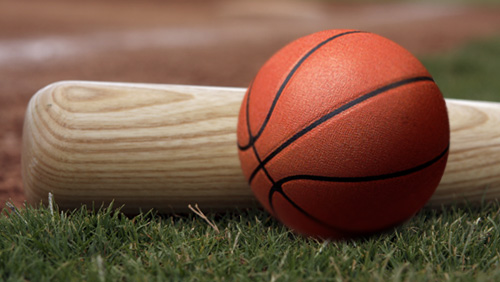The National Basketball Association (NBA) and Major League Baseball (MLB) aren’t happy with the latest sports betting measure in Iowa.
 The Des Moines Register reported that the NBA and MLB opposed a bill seeking to legalize sports betting in Iowa in the event the Supreme Court declares the 1992 Professional and Amateur Sports Protection Act (PASPA) unconstitutional.
The Des Moines Register reported that the NBA and MLB opposed a bill seeking to legalize sports betting in Iowa in the event the Supreme Court declares the 1992 Professional and Amateur Sports Protection Act (PASPA) unconstitutional.
The major sports leagues aren’t actually opposing the bid of the state to legalize sports betting, per se. The problem lies with so-called “integrity fee” provision of the bill.
The NBA and the MLB both pointed out that the House Study Bill 592 fell short on safety nets that will protect the integrity of sports betting. Reading between lines, the Iowa Gaming Association said that the NBA and the MLB are demanding for major league sports fees.
“It would kill sports betting in any state,”said Wes Ehrecke, president of the Iowa Gaming Association, according to the news outlet.
Should the state agree with the 1 percent fee that the sports leagues were demanding on the gross amount of money bet, Ehrecke pointed out that it would eat 20 percent of what’s left after pot money had been paid out.
He further explained that about 95 percent of the money wagered would be returned to the gamblers, while the remaining 5 percent would be divided among the state, federal taxes, overhead expenses, and a small share of profits for casinos and community groups.
“It is unfortunate there wouldn’t be a good partnership with all the leagues, because they will benefit from people watching games and betting on games,” Ehrecke told the news outlet. “But there certainly doesn’t need to be an integrity fee.”
For their part, NBA spokesman Mike Bass said that the basketball league remains committed to work with legislators to “ensure that sports betting laws include these protections.” MLB spokesman Pat Courtney echoed the statements of Bass, insisting that “sports betting legislation must include certain protections to mitigate risk to our game.”
There are at least 18 U.S. States that are likely to introduce sports betting bills this year should the high tribunal lift the federal ban on sports betting, according to a recent Eilers&Krejcik Gaming research.However, the same research showed that only 11 of these 18 states are likely to have a good chance of enacting their betting bills.
The more conservative states—Tennessee, Alabama, Arkansas, Texas, Kansas, Nebraska, North and South Dakota, Wyoming, Utah, Idaho, Alaska, and Hawaii—are least likely to consider enacting sports betting bills, according to the research firm.